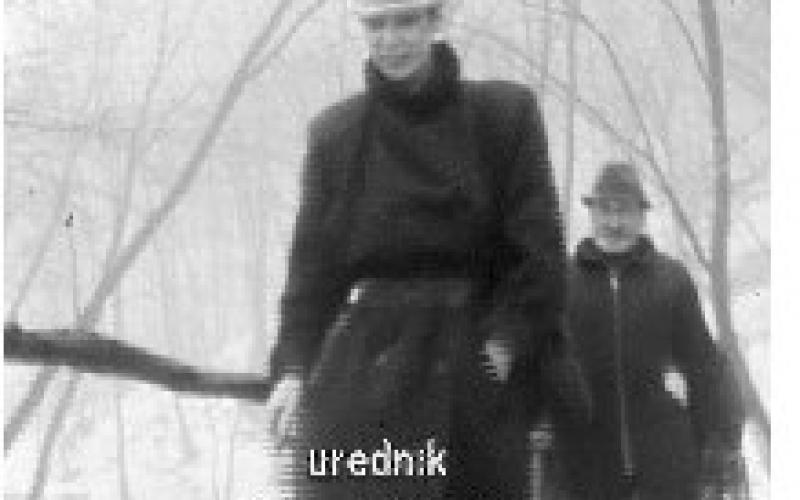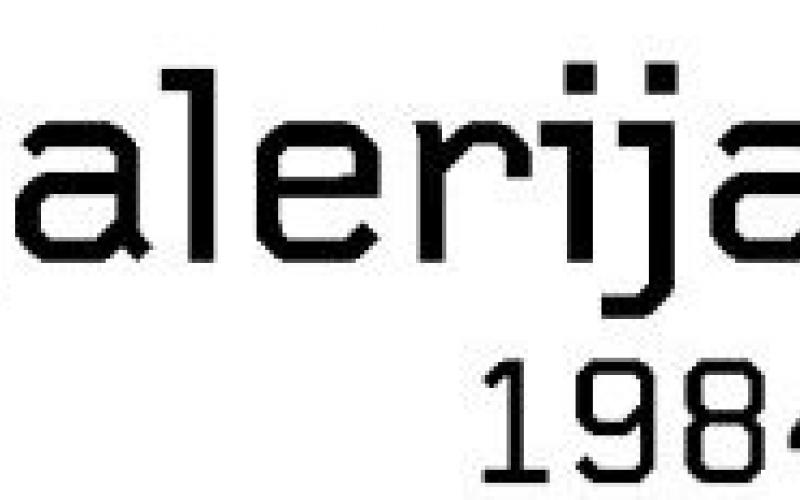TV GALLERY, OPENING OF THE EXHIBITION IN ZAGREB, Thursday 6.12. in Gallery Nova, Teslina str.7
Curator and art historian Dunja Blazevic ran a gallery of Student's Cultural Center in Belgrade during the 1970ies and profiled it into a space open to artistic experiments, new media and critical perspectives, strong international cooperation and collaboration among the artists in the cities of the former Yugoslavia. In 1981 she became the editor of contemporary art segment in the TV shows "Friday at 22" and "Other Art" at the national TV station TV Belgrade. These series grew into regular monthly show entitled "TV Gallery", which was broadcasted on the Yugoslav TV network from 1984 - 1991. "TV Gallery" represents important document of interdisciplinary, socially engaged artistic and curatorial practice and it is unsurpassed example of a public TV concept and art's place within it.
Reasons for an exhibition about a TV show from the second half of the 1980ies are multiple and concern the media itself (TV medium and medium of gallery exhibition) as much as the content (contemporary art in its broadened sense that emerged in the 1970ies), as well as their interrelation in the context of culture, culture policy and culture practices of what is today called an era of "decadent Yugoslav socialism" of the 1980ies in the 20th century.
Emergence of TV Gallery in the medium of television in the Yugoslav context in a certain way was made possible by contemporary art of the 70ies and 80ies, characterized by the ideas of democratization, perception and production of contemporary art (such as activities of number of artists within the so called 'new art practice'), abandoning of traditional artistic spaces and traditional artistic media, tactical use of media, participation, collectivity and change of the author's status. Television was understood as "natural" media surrounding for video art, and gallery presentation of video was a considered a second-best solution. Today, that idea, or hope, is almost completely abolished and forgotten.
TV shows of Dunja Blazevic dealt with broad understanding of contemporary art (from historical avant-garde to conceptual art and so called new artistic practice, video art, design, comics, and literature as well...), were not limited by "genre", show duration was not always the same, the choice of music was obviously influenced by then still current "new wave". Shows are interesting as a symptom not only of cultural and artistic scenes of that period in Yugoslavia, but also of public television, society and the state in which these projects were possible. Today the preserved tapes of these shows could be viewed as materialized remaining of an ideology, that clearly show how these experiments are unacceptable in contemporary media space of public television, where they would be formally and content-wise considered as elitist, noncommercial, uninteresting.
Out of this ensues a paradoxical fact that the TV shows aiming at mass media public today can return only in a 'closed', 'elitist' space of a white cube gallery. In the world of Big Brother and programmed social oblivion, 'obsolete' media space of a gallery reaffirms itself as one of a rare spaces of freedom and experiment, a place of reminiscence that social and media reality are not unambiguously marked with politics nor economy. Although socio-political context enabled these shows, nothing would have happened without initiative, creativity, and even boldness of editors, redactors, directors and artists that produced the shows and had clear ideas about theory and ideology of media, art and personal action.
The exhibition "TV gallery" is the first showing of the program after Dunja Blazevic stopped working at TV Beograd at the end of 1990. After Zagreb exhibition, "TV Gallery" will be presented in Novi Sad (February 2008), Sarajevo and Belgrade.
The exhibition 'TV Gallery' is part of the project "Political practices of (post)Yugoslav Art"
www.pp-yu-art.net
http://www.kuda.org/?q=node/555
Partners:
kuda.org (Novi Sad), www.kuda.org
Prelom kolektiv (Belgrade), www.prelom.org
SCCA/Pro.ba (Sarajevo), www.scca.ba, www.pro.ba
WHW (Zagreb), www.whw.hr
Project is supported by:
European Cultural Foundation
TV material is on loan from the archive of Radio Television of Belgrade.
The exhibition "TV Gallery" is enabled by support of:
Office for Culture, Education and Sports of the Zagreb City
Ministry of Culture of Republic of Croatia
National Foundation for Development of Civil Society, Zagreb
AGM, Zagreb
DOO K.D.S., Novi Sad
HALOGEN, Novi Sad
Thank to all authors and artists who has been participating in the project.


